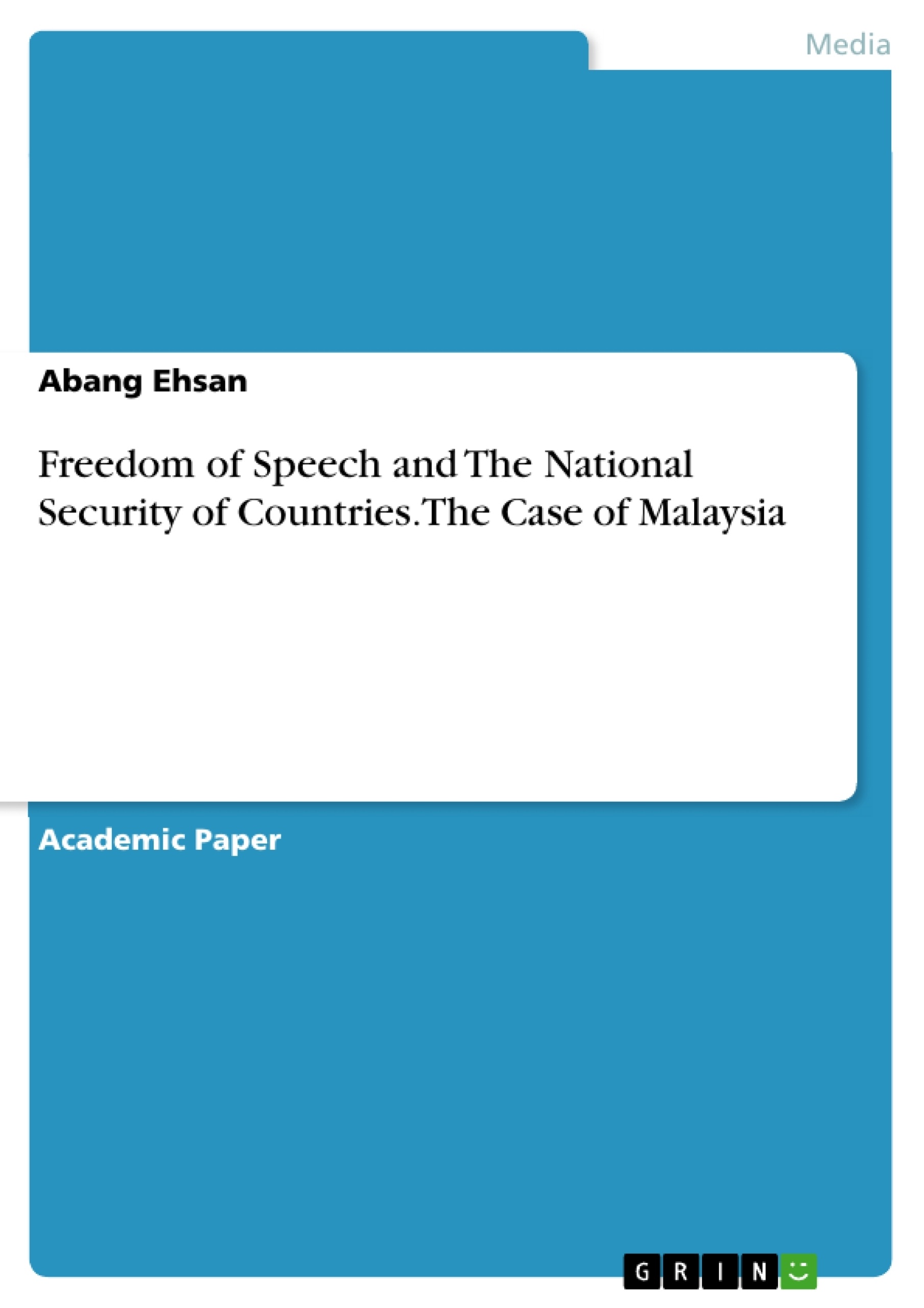This write up will be explaining on freedom of speech which will be connected to the national security of countries.
Cases and events will be listed out to understand better the mixture of free speech and how it affects the security of a nation. During this process, special focus will be put on Malaysia.
The examples shown later are based on how freedom of speech is restricted based on different agendas, positive and negative. Finally, in the conclusion segment, the answer on the best way for the nation to approach freedom of speech and not threatening the existing national security of any country shall be brought forward.
Table of Contents
- Abstract
- Freedom of Speech & National Security
- Conclusion
- References
Objectives and Key Themes
This paper aims to explore the complex relationship between freedom of speech and national security. It examines how the right to free expression can be both a benefit and a threat to a nation's security, considering legal restrictions and their implications.
- Freedom of speech as a fundamental human right
- Limitations on freedom of speech imposed by national security concerns
- The balance between protecting national security and upholding freedom of expression
- Case studies illustrating the tension between free speech and national security
- The role of government in defining and managing national security threats
Chapter Summaries
Freedom of Speech & National Security: This chapter delves into the definition of freedom of speech, emphasizing its importance as a fundamental right while acknowledging the potential for its misuse. It contrasts this with the concept of national security, outlining its various components and the need for its protection. The chapter highlights the inherent conflict that arises when the exercise of free speech poses a threat to national security. It uses examples of how governments often justify human rights violations under the guise of national security concerns, often with unclear definitions of what constitutes such threats. The chapter underscores the responsibility of governments and judicial systems in balancing these competing interests, emphasizing the need for carefully defined and narrowly applied limitations on freedom of speech to protect genuine national security interests. The author explores the complexities of these issues, noting the potential for the misuse of power and the need for strong legal protections.
Keywords
Freedom of speech, national security, human rights, limitations on expression, government regulation, international law, case studies, Charlie Hebdo, balancing competing interests.
Frequently Asked Questions: Freedom of Speech & National Security
What is the main topic of this document?
This document explores the complex relationship between freedom of speech and national security. It examines how the right to free expression can be both beneficial and detrimental to a nation's security, considering legal restrictions and their implications.
What are the key themes discussed?
Key themes include freedom of speech as a fundamental human right, limitations on freedom of speech due to national security concerns, balancing national security with freedom of expression, case studies illustrating this tension, and the government's role in defining and managing national security threats.
What does the document cover in terms of chapter summaries?
The chapter on "Freedom of Speech & National Security" defines freedom of speech and national security, highlighting their inherent conflict. It explores how governments may justify human rights violations under the guise of national security, often with vague threat definitions. The chapter emphasizes the need for a balance, achieved through carefully defined and narrowly applied limitations on free speech to protect genuine national security interests, while acknowledging potential for power misuse and the need for strong legal protections.
What are the objectives of this paper?
The paper aims to analyze the intricate relationship between freedom of speech and national security, investigating how free expression can simultaneously benefit and threaten a nation's security. It also explores the legal ramifications of restrictions on free speech.
What is included in the table of contents?
The table of contents includes an abstract, a chapter on Freedom of Speech & National Security, a conclusion, and a list of references.
What keywords are associated with this document?
Keywords include freedom of speech, national security, human rights, limitations on expression, government regulation, international law, case studies, and balancing competing interests. The example of Charlie Hebdo is also mentioned.
What type of document is this?
This is a comprehensive language preview containing the title, table of contents, objectives and key themes, chapter summaries, and keywords.
Who is the intended audience?
While not explicitly stated, the academic nature of the document suggests the intended audience is likely researchers, students, or professionals interested in the intersection of law, politics, and human rights.
- Citation du texte
- Abang Ehsan (Auteur), 2019, Freedom of Speech and The National Security of Countries. The Case of Malaysia, Munich, GRIN Verlag, https://www.grin.com/document/462497



